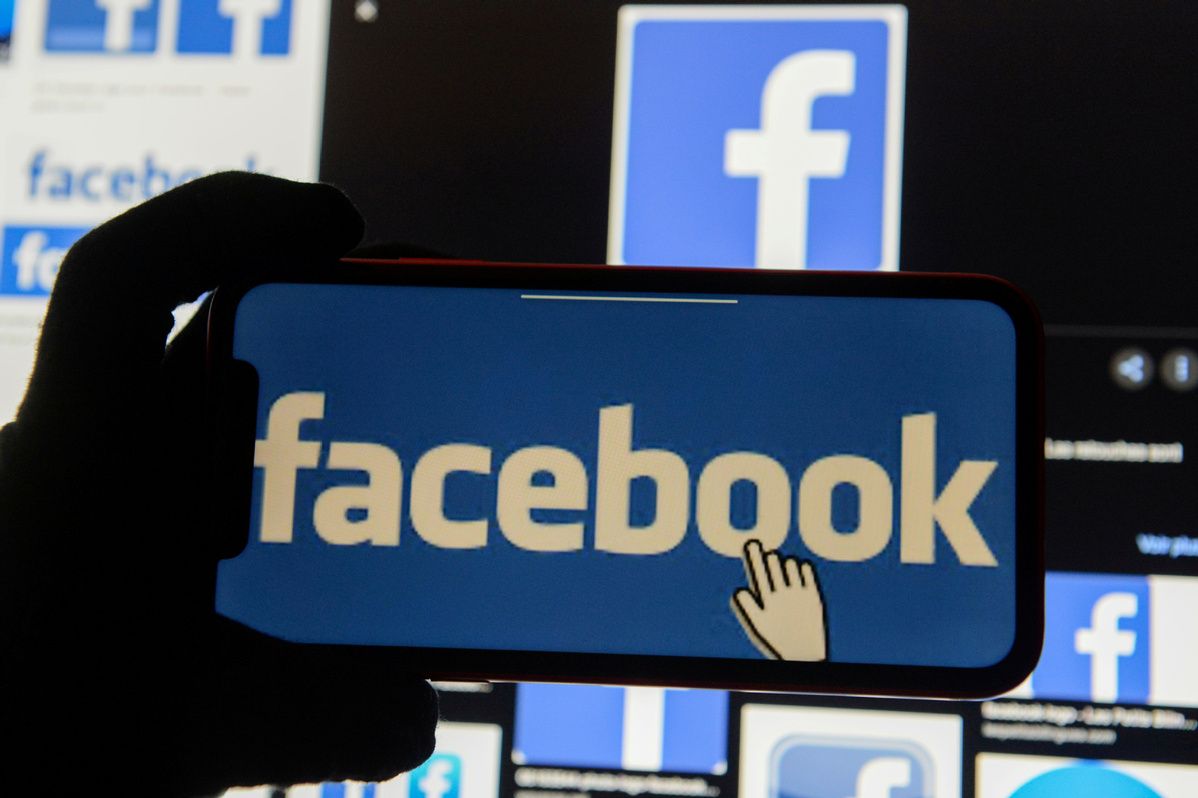source: editor:张悦

The Facebook logo is displayed on a mobile phone in this picture illustration taken on Dec 2, 2019. [Photo/Agencies]
Within days of a rapprochement between the Australian government and social media giant Facebook over payment for news content, the dominoes have started to fall.
Across the Tasman Sea, the New Zealand government has hinted it may follow Australia's lead.
Kris Faafoi, New Zealand's minister for broadcasting and media, said on March 4 that he was considering adopting rules similar to those reached in Australia on Feb 25, which require tech giants such as Facebook and Google to pay for using local news.
The world's population is roughly 7 billion, of which 3 billion are Facebook users. This gives Facebook massive reach and power.
It has the power to switch off the accounts of powerful figures, as was the case with former US president Donald Trump. And it can switch off the news, as it did in Australia on Feb 18 over a long running argument about paying Australian news providers for their news.
Facebook has said news does not drive its revenue base. If that is the case, then why put up such a big fight with the Australian government and Australian media owners over paying for content?
The short answer is principle. Facebook lives in a world of its own making and will not be told what to do by anyone.
For the best part of three years, the Australian government has been pushing for a code in which social media companies like Google and Facebook pay local media for their content.
Obviously, with talks not going its way, Facebook flexed its Big Tech muscles and banned Australian news organizations. In doing so, it also saw several nonmedia players, such as charities and government sites, blocked as well-something that Facebook said was unintentional.
The fact that Facebook could simply switch off, in this case, Australian news on its platform was widely criticized as being undemocratic and even authoritarian. But Facebook made its point.
A week later, the news was switched back when a last-minute compromise had been reached following phone calls between Facebook's Mark Zuckerberg and the Australian Treasurer Josh Frydenberg.
This is the new reality that has been facing traditional media since the birth of the internet.
For decades, traditional media owners have been watching their ad revenues and readership numbers steadily decline as social media have taken over.
Australian Prime Minister Scott Morrison likes to say social media may be changing the world but do not run it. But in doing so, he misses the point. It has power-real power.
In Australia alone, 17 million people are said to be Facebook users. That's real power for anyone, considering the population is just over 25 million.
The argument in Australia had more to do with old media trying to cling to their declining power base, rather than politics.
The problem with old media is that they have seen themselves as the arbiter of truth and justice, a Fourth Estate between the political class, church and the people. But today there is a "fifth estate", social media, where anyone with a mobile phone or laptop can post their own ideas, viewpoints or opinions. The old, traditional newsroom is now being driven by social media.
Traditional media may have held the moral high ground once, but not anymore. Its prestige is fading along with the typewriter.
Even so, media companies that still print newspapers are desperate to seek revenue streams from wherever they can get them.
The News Media and Digital Platforms Mandatory Bargaining Code will now become one such stream, where the Googles and Facebooks of the world will have to pay Australian news outlets for using their content.
Google had already entered into agreements with several Australian news organizations when Facebook said no and blocked all Australian news sites.
The likes of Facebook do not create news. They just facilitate the link. The irony here is that many of Australia's news sites are pay sites anyway.
Australia's media sector is basically controlled by three major players-News Corp Australia, Nine Entertainment (owners of the former Fairfax newspaper group) and Seven West Media. They all have pay sites and will reap rewards from social media players.
The losers will be the small, independent media outfits such as newspapers in the suburbs and in regional Australia.